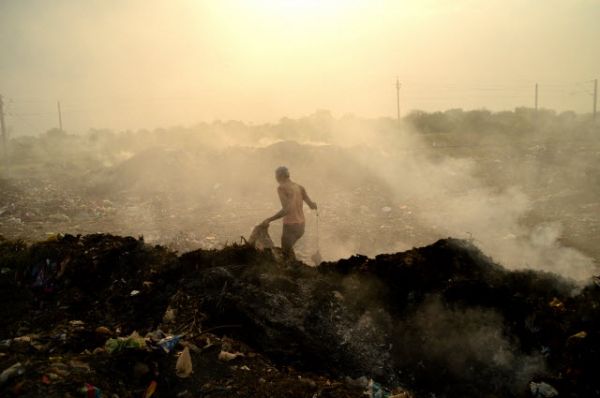Aerosol emissions from burning coal and wood are dangerous to human health, but it turns out that by cooling the Earth they also diminish global economic inequality, according to a new study by Carnegie’s Yixuan Zheng, Geeta Persad, and Ken Caldeira, along with UC Irvine’s Steven Davis. Their findings are published by Nature Climate Change.
Tiny particles spewed into the atmosphere by human activity, called “anthropogenic aerosols,” interact with clouds and reflect some of the Sun’s energy back into space. They have a short-term cooling effect that’s similar to how particles from major volcanic eruptions can cause global temperatures to drop. This masks some of the warming caused by much-longer-lived greenhouse gases, which trap the Sun’s heat in the planet’s atmosphere.
“Estimates indicate that aerosol pollution emitted by humans is offsetting about 0.7 degrees Celsius, or about 1.3 degrees Fahrenheit, of the warming due to greenhouse gas emissions,” said lead author Zheng. “This translates to a 40-year delay in the effects of climate change. Without cooling caused by aerosol emissions, we would have achieved 2010-level global mean temperatures in 1970.”
Previous research has shown that climate change provides some economic benefits to countries in cool regions—which would be warmed to temperatures that are ideal for agricultural productivity and human labor—and economic harm to countries in already hot regions.
Continue reading at Carnegie Institution of Science
Image via Carnegie Institution of Science


